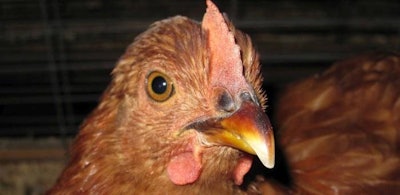
Fish meal cooked at high temperatures (over 130C) for prolonged time can be the source of a very powerful toxin, gizzerozine. This is a biogenic amine formed from combining lysine and histamine during the drying process of fresh fish and fish offal. Gizzerozine is deemed 100 times stronger than histamine in stimulating secretion of hydrochloric acid in the proventriculus; this excess of hydrochloric acid causes erosion of the gizzard with associated blood loss. Histamine is also a biogenic amine.
Poultry consuming diets rich in fish meal quite often exhibit symptoms of fish meal poisoning, as evidenced by visual identification of gizzard erosion and black vomit. Depending on the severity of the problem, mortality can exceed 10 percent of affected birds during the first two weeks of consuming high levels of gizzerozine. Even in surviving birds, growth rate and overall immunity status are reduced, whereas gizzards are frequently found unsuitable for human consumption at slaughter. It should be noted here that gizzard erosion alone is not a clear indication of gizzerozine poisoning as other conditions, and even vitamin deficiencies, can cause this problem.
Currently, there is no commercially available lab test to quantify gizzerozine in fish meal. Large batches of suspected fish meal can be evaluated with a biological assay. In this test, groups of 20 birds are fed a fish meal-rich diet for two weeks. At the end of the feeding period, birds are sacrificed and gizzards are scored for erosions (0 = unaffected to 4 = mortality). A score of 20 summed from a group of 10 birds gives a value of 1 gizzerozine unit.
Nevertheless, the best advice, when birds start vomiting blood-stained digesta and fish meal is suspected as being high in gizzerozine, is to secure a new source of fish meal and reevaluate the problem. Currently, there is no other way than changing suppliers to resolve this problem.














